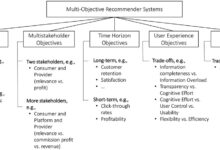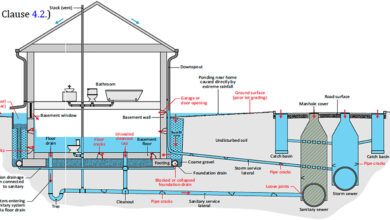Systems Manager: 7 Powerful Roles and Responsibilities Revealed
Ever wondered who keeps the digital heartbeat of a company ticking smoothly? Meet the systems manager — the unsung hero behind seamless operations, robust IT infrastructure, and strategic tech planning. This role isn’t just about fixing servers; it’s about leading innovation and efficiency across entire organizations.
What Is a Systems Manager? Defining the Role

A systems manager plays a pivotal role in ensuring that an organization’s technological systems operate efficiently, securely, and in alignment with business goals. This position sits at the intersection of technology, strategy, and leadership, making it one of the most dynamic roles in modern enterprises.
Core Definition and Scope
The term systems manager refers to a professional responsible for overseeing the planning, implementation, maintenance, and optimization of computer systems within an organization. This includes hardware, software, networks, databases, and cloud environments. The scope can vary depending on the size and industry of the company, but the core mission remains consistent: ensure reliability, security, and performance.
- Manages both on-premise and cloud-based infrastructure
- Coordinates with IT teams, vendors, and stakeholders
- Ensures compliance with industry standards and regulations
Evolution of the Systems Manager Role
Historically, systems managers were primarily focused on mainframes and internal networks. However, with the rise of cloud computing, cybersecurity threats, and digital transformation, the role has evolved significantly. Today’s systems manager must be fluent in DevOps practices, automation tools, and agile methodologies.
“The modern systems manager is less of a technician and more of a strategic enabler.” — TechTarget, techtarget.com
Key Responsibilities of a Systems Manager
The responsibilities of a systems manager are broad and multifaceted, spanning technical oversight, team leadership, and strategic planning. These duties ensure that technology supports and enhances business operations rather than hindering them.
Infrastructure Planning and Deployment
One of the primary duties of a systems manager is designing and deploying IT infrastructure that meets current and future business needs. This involves evaluating new technologies, selecting appropriate platforms, and overseeing installation and configuration.
- Conducts needs assessments to determine system requirements
- Plans for scalability and redundancy
- Implements virtualization and containerization solutions
System Maintenance and Optimization
Once systems are live, the systems manager ensures they run smoothly through regular updates, patches, monitoring, and performance tuning. Proactive maintenance prevents downtime and extends the lifespan of IT assets.
- Schedules routine maintenance windows
- Uses monitoring tools like Nagios or Zabbix
- Optimizes resource allocation (CPU, memory, storage)
Security and Compliance Oversight
In an era of increasing cyber threats, the systems manager plays a critical role in safeguarding data and systems. They implement firewalls, intrusion detection systems, encryption protocols, and access controls.
- Enforces security policies and conducts audits
- Responds to security incidents and breaches
- Ensures compliance with GDPR, HIPAA, or SOX as applicable
Essential Skills for a Successful Systems Manager
To thrive in this complex role, a systems manager must possess a unique blend of technical expertise, leadership ability, and business acumen. These skills are not only important for day-to-day operations but also for long-term strategic success.
Technical Proficiency
A deep understanding of operating systems (Windows, Linux, Unix), networking protocols (TCP/IP, DNS, DHCP), and database management (SQL, NoSQL) is fundamental. Additionally, familiarity with scripting languages such as Python, Bash, or PowerShell enables automation and efficient troubleshooting.
- Mastery of server administration and virtualization (VMware, Hyper-V)
- Experience with cloud platforms like AWS, Azure, or Google Cloud
- Knowledge of CI/CD pipelines and configuration management tools (Ansible, Puppet)
Leadership and Communication Skills
As a leader, the systems manager must guide IT teams, delegate tasks effectively, and communicate technical concepts to non-technical stakeholders. Strong interpersonal skills are essential for collaboration across departments.
- Leads cross-functional teams during system upgrades or migrations
- Presents technical reports to executives and board members
- Mentors junior staff and fosters a culture of continuous learning
Problem-Solving and Analytical Thinking
When systems fail or performance degrades, the systems manager must quickly diagnose issues and implement solutions. This requires logical thinking, attention to detail, and the ability to analyze logs, metrics, and user feedback.
- Uses root cause analysis techniques (e.g., 5 Whys, Fishbone diagrams)
- Interprets system performance data using tools like Splunk or Grafana
- Anticipates potential failures through predictive analytics
Systems Manager vs. IT Manager: Understanding the Difference
While the titles may seem interchangeable, there are distinct differences between a systems manager and an IT manager. Confusing the two can lead to misaligned expectations and inefficient organizational structures.
Scope of Responsibility
A systems manager typically focuses on the technical aspects of IT infrastructure — servers, networks, storage, and system performance. In contrast, an IT manager has a broader scope, overseeing all IT functions including help desk support, software licensing, budgeting, and project management.
- Systems manager: Deep technical focus on backend systems
- IT manager: Broader administrative and managerial responsibilities
- Overlap exists, especially in smaller organizations
Reporting Structure and Authority
In larger companies, the systems manager often reports to the IT manager or CIO. The IT manager may have budgetary control and HR responsibilities, while the systems manager concentrates on technical execution and team supervision within their domain.
- IT manager approves capital expenditures for new systems
- Systems manager evaluates technical specifications and vendor proposals
- Both collaborate on strategic planning and risk assessment
Day-to-Day Activities Compared
The daily routine of a systems manager involves monitoring system health, applying patches, troubleshooting outages, and planning upgrades. An IT manager, meanwhile, spends more time in meetings, managing vendors, reviewing service level agreements (SLAs), and aligning IT goals with business objectives.
- Systems manager: Hands-on with servers and networks
- IT manager: Focused on policy, governance, and stakeholder communication
- Both roles require adaptability and crisis management skills
How to Become a Systems Manager: Education and Career Path
Becoming a systems manager typically requires a combination of formal education, certifications, and hands-on experience. The journey often starts in entry-level IT roles and progresses through increasing levels of responsibility.
Educational Requirements
Most systems managers hold at least a bachelor’s degree in computer science, information technology, or a related field. Coursework in networking, operating systems, database management, and cybersecurity provides a solid foundation.
- Common degrees: BS in Computer Science, IT, or Management Information Systems (MIS)
- Advanced roles may require a master’s degree (e.g., MBA with tech focus or MS in Cybersecurity)
- Some enter the field via vocational training or bootcamps, especially in cloud or DevOps specialties
Industry Certifications That Matter
Certifications validate expertise and are highly valued by employers. They demonstrate commitment to professional development and mastery of specific technologies.
- CompTIA A+, Network+, Security+: Foundational knowledge
- Microsoft Certified: Azure Administrator or Systems Engineer
- Cisco CCNA or CCNP: For network-heavy environments
- AWS Certified Solutions Architect: Critical for cloud-based roles
- ITIL Foundation: Best practices in IT service management
Typical Career Progression
Many systems managers begin as system administrators, network technicians, or help desk analysts. With experience, they move into senior technical roles before transitioning into management.
- Entry-Level: System Administrator, Network Support Technician
- Mid-Level: Senior Systems Engineer, DevOps Engineer
- Advanced: Systems Manager, IT Operations Manager
- Executive: Director of IT, Chief Information Officer (CIO)
Tools and Technologies Used by Systems Managers
Modern systems managers rely on a wide array of tools to monitor, manage, and secure IT environments. Mastery of these tools is essential for efficiency, scalability, and incident response.
Monitoring and Management Platforms
These tools provide real-time visibility into system performance, alerting administrators to issues before they impact users.
- Nagios: Open-source monitoring for servers, switches, and applications
- Zabbix: Scalable monitoring solution with automation features
- Datadog: Cloud-based observability platform for hybrid environments
- Prometheus + Grafana: Popular stack for metrics collection and visualization
Automation and Configuration Management
Automation reduces manual errors, speeds up deployments, and ensures consistency across systems.
- Ansible: Agentless automation for configuration and orchestration
- Puppet: Declarative language for enforcing system state
- Chef: Infrastructure-as-code tool for scalable environments
- Terraform: For provisioning cloud infrastructure using code
Security and Compliance Tools
Protecting sensitive data and meeting regulatory requirements is a top priority.
- SIEM (Security Information and Event Management): Splunk, IBM QRadar
- Endpoint Protection: CrowdStrike, SentinelOne
- Vulnerability Scanners: Nessus, OpenVAS
- Identity and Access Management (IAM): Okta, Microsoft Entra ID
The Future of the Systems Manager Role
As technology continues to evolve, so too does the role of the systems manager. Emerging trends such as artificial intelligence, edge computing, and zero-trust security models are reshaping what’s expected from IT leadership.
Impact of Artificial Intelligence and Machine Learning
AI is transforming how systems are monitored and maintained. Predictive analytics can now forecast hardware failures, optimize resource usage, and even automate incident response.
- AI-driven monitoring tools detect anomalies faster than humans
- Machine learning models improve capacity planning accuracy
- Chatbots and virtual assistants handle routine support queries
Rise of Cloud-Native and Hybrid Environments
More organizations are adopting hybrid or multi-cloud strategies, requiring systems managers to master diverse platforms and ensure seamless integration.
- Need for expertise in Kubernetes and container orchestration
- Focus on cloud cost optimization and governance
- Increased reliance on Infrastructure-as-Code (IaC)
Shift Toward DevOps and SRE Models
The traditional silos between development and operations are breaking down. Systems managers are increasingly expected to adopt DevOps principles or work closely with Site Reliability Engineering (SRE) teams.
- Emphasis on continuous integration and delivery (CI/CD)
- Service-level objectives (SLOs) and error budgets become key metrics
- Culture of shared ownership for system reliability
Challenges Faced by Systems Managers Today
Despite the rewards, the systems manager role comes with significant challenges. From managing complexity to dealing with talent shortages, these obstacles require resilience and strategic thinking.
Managing Complexity in Hybrid IT Environments
With organizations running workloads across on-premise data centers, private clouds, and public clouds, maintaining visibility and control is increasingly difficult.
- Different platforms have different management interfaces and APIs
- Data sovereignty and latency issues arise in global deployments
- Need for unified monitoring and governance tools
Cybersecurity Threats and Incident Response
The frequency and sophistication of cyberattacks continue to rise. Systems managers must stay ahead of threats while balancing usability and security.
- Ransomware attacks can cripple operations overnight
- Insider threats and phishing remain persistent risks
- Requires 24/7 readiness and robust disaster recovery plans
Talent Shortage and Team Management
Finding and retaining skilled IT professionals is a major challenge. High turnover and skill gaps can strain team performance.
- Competition for cloud and security experts is intense
- Need for ongoing training and certification support
- Remote work adds complexity to team coordination
Best Practices for Effective Systems Management
To excel in this demanding role, systems managers should adopt proven best practices that enhance reliability, security, and efficiency.
Implement Proactive Monitoring and Alerting
Waiting for users to report issues is no longer acceptable. Proactive monitoring allows teams to detect and resolve problems before they escalate.
- Set up real-time alerts for CPU, memory, disk, and network usage
- Use dashboards to visualize system health across environments
- Integrate monitoring with ticketing systems (e.g., Jira, ServiceNow)
Document Everything
Comprehensive documentation is critical for knowledge transfer, compliance, and troubleshooting.
- Maintain up-to-date network diagrams and system configurations
- Document standard operating procedures (SOPs) for common tasks
- Keep an inventory of hardware, software licenses, and vendor contacts
Foster a Culture of Continuous Improvement
Technology never stands still, and neither should a systems management team.
- Conduct regular post-mortems after incidents to identify improvements
- Encourage team members to pursue certifications and attend conferences
- Adopt agile methodologies for internal projects and upgrades
What does a systems manager do?
A systems manager oversees the design, implementation, maintenance, and security of an organization’s IT infrastructure. They ensure that computer systems run efficiently, support business goals, and remain protected against threats. Their responsibilities include managing servers, networks, cloud services, and leading technical teams.
How much does a systems manager earn?
According to the U.S. Bureau of Labor Statistics, the median annual wage for computer and information systems managers was $164,000 in 2023. Salaries vary based on location, industry, experience, and certifications. High-demand sectors like finance and tech often offer higher compensation.
Is systems manager a good career?
Yes, being a systems manager is a highly rewarding career with strong job growth, competitive salaries, and opportunities for advancement. It’s ideal for individuals who enjoy problem-solving, technology, and leadership. The demand for skilled systems managers is expected to grow 10% from 2022 to 2032, faster than average.
What certifications are best for a systems manager?
Top certifications include CompTIA Security+, Microsoft Certified: Azure Administrator, AWS Certified Solutions Architect, Cisco CCNA, and ITIL Foundation. These credentials validate technical expertise and are highly regarded by employers in the IT industry.
Can a systems manager work remotely?
Yes, many systems manager roles offer remote or hybrid work options, especially in organizations with cloud-based infrastructure. However, some on-site presence may be required for hardware maintenance, data center visits, or critical incident response.
The role of a systems manager is more critical than ever in today’s digital-first world. From ensuring system uptime to leading cybersecurity initiatives, these professionals are the backbone of organizational resilience and innovation. As technology evolves, so too must the skills and strategies of those who manage it. Whether you’re aspiring to become a systems manager or looking to optimize your current team, understanding this role’s depth and breadth is essential for long-term success.
Further Reading:









